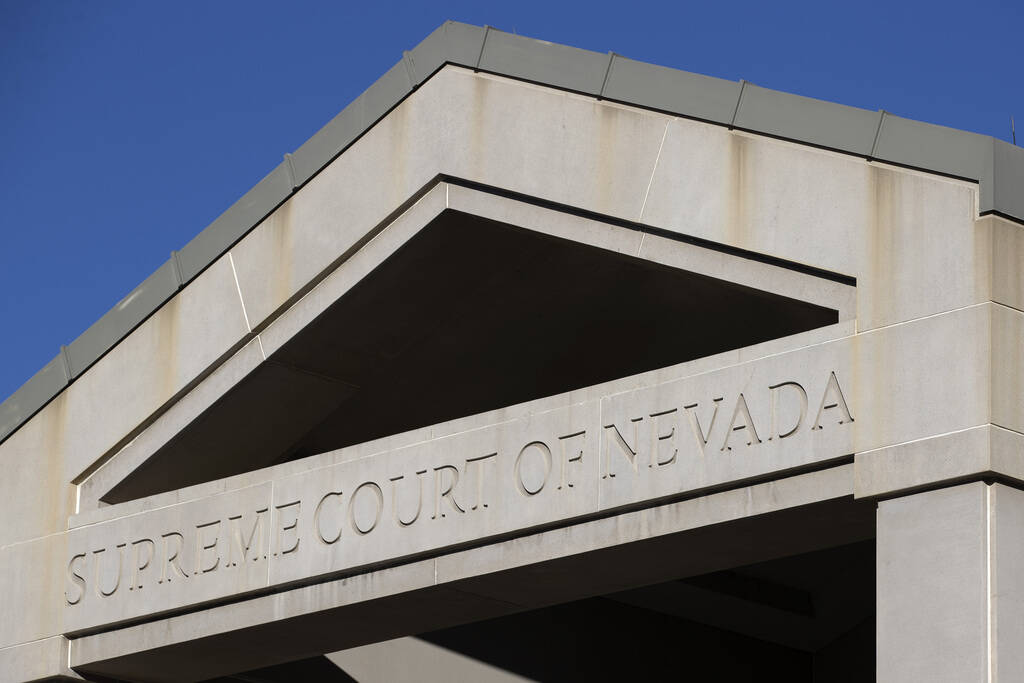EDITORIAL: Weakening the separation of powers clause
The Nevada Supreme Court has a history of massaging the law to protect the state’s political elites — allowing lawmakers to ignore the two-thirds requirement for tax hikes, neutering term limits and abetting secret judicial discipline, for instance. A decision last week that weakens a vital constitutional protection is another disappointing example.
The case involved a long dispute about public employees serving in the Legislature. The practice has been ongoing for decades in Carson City despite the Nevada Constitution’s separation of powers clause, which holds that the state government is divided into the executive, legislative and judicial branches and “no persons charged with the exercise of powers properly belonging to one of these departments shall exercise any functions, appertaining to either of the others.”
Most previous legal challenges on this matter had faltered on technical or procedural grounds. But a case brought by the Nevada Policy Research Institute — a free-market think tank in Las Vegas — finally made its way to the high court last year. It questioned the service of six lawmakers who also held jobs in the public sector. Two of the legislators were later dropped from the lawsuit when they resigned their positions as Clark County prosecutors.
On Thursday, the justices ruled 4-3 in favor of the four remaining lawmakers, who included two public school teachers, one public defender and one employee of the state higher education system. While the majority justices acknowledged the importance of the separation of powers principle — the founders properly recognized it as an important check on tyranny because it ensured that power would be spread among many interests — they held that it did not apply to local government employees or those working in the university system.
The decision is inconsistent and strained.
For instance, the majority holds on one hand that “employment with local government does not involve the exercise of the executive authority constitutionally bestowed on the executive department.” Yet in a footnote, the same justices note that their ruling does not cover county prosecutors — who are clearly exercising the authority of the state — acknowledging that some local government workers are indeed carrying out the will of the executive branch.
Their protection of university employees is equally troubling. The majority justices determine that, “The Nevada System of Higher Education is not organized within the executive department, and dual service within it and the Legislature does not violate the separation of powers.” But as dissenting Justice Douglas Herndon writes, this means the system of higher education must exist “in an unnamed, discrete department of state government. This is both legal error and contradictory to the constitution.” Are we to believe that the state’s founding document designates the university system as an independent fourth branch of government? If so, where does it say this? On the contrary, the document explicitly states that the state government consists of only three branches.
“The majority’s struggle to identify which department (the university system) falls into is a symptom of its attempt to resist the express language used by our framers,” Justice Herndon offers.
To their credit, the majority justices state clearly that “dual service in two departments of state government offends the separation of powers and thus violates the Nevada Constitution.” This is progress. They also rejected the risible notion that the separation of powers clause applies only to department heads who exercise “sovereign authority.” As the justices note, the clear language of the constitution makes no such distinction.
But carving out a large exception for local government workers and university system employees — without considering whether any of these workers actually “exercise any functions” of the state executive branch — undermines the concept of checks and balances and loosens a crucial restraint on the authoritarian impulses of the state. That’s unfortunate.

















